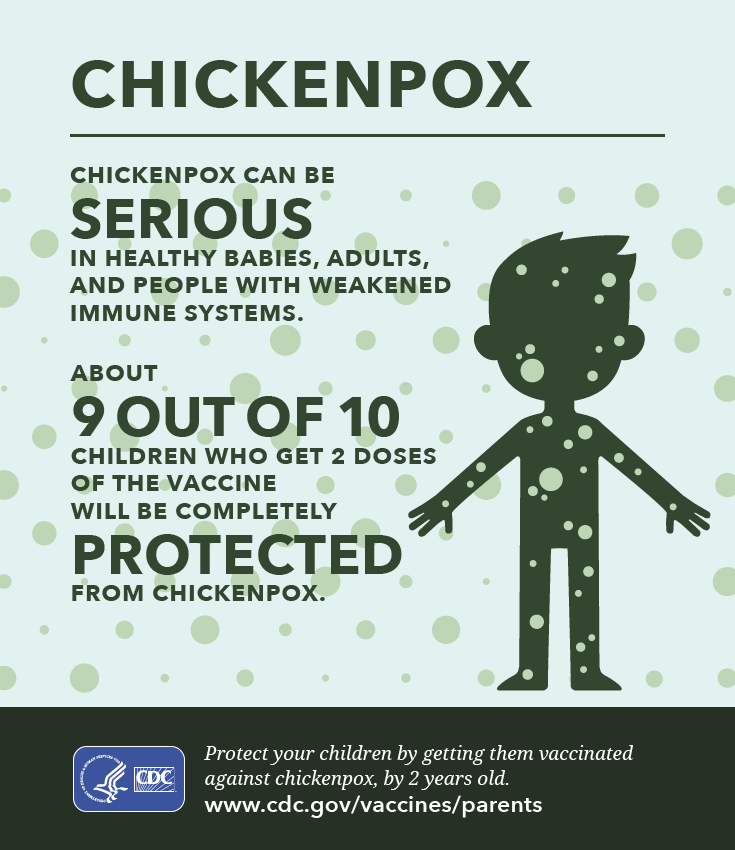By Laura Sosinsky, Ph.D.
High-quality child care starts with promoting and protecting children’s health, safety, and well-being. Immunizations are critical to reducing the spread of infectious disease in group child care and keeping children healthy.
Understanding vaccinations and talking with families about them can help child care providers meet regulatory requirements and protect the health of the young children in their care.
Why vaccinate? Young children’s immune systems are not yet built up, making them vulnerable to getting sick. Exposure to contaminants and illness is more likely for young children in group settings than for those who have less contact with other children. Today there are over 16 diseases that are preventable through immunization.
Before vaccines, worried parents used to try to protect their children through uncertain means, such as sending them to the country for the summer to avoid polio. More recently, many of you may remember parents taking their children to chickenpox “parties” hoping early exposure would mean milder illness. Today, we have almost forgotten about diseases like measles, polio, rubella, whooping cough, and diphtheria. High levels of vaccination coverage have resulted in historically low levels of vaccine-preventable diseases and are projected to prevent over 40,000 early deaths and 20 million cases of a disease.
Remarkably, vaccines don’t just protect the recipient. When an overwhelming majority of people in a group are immunized, everyone is protected because there is little chance for an outbreak. This “community immunity” – also called “herd immunity” – gives some protection even to those who aren’t eligible for certain vaccines, such as infants, pregnant women, and people with cancer.
When communities have low vaccination rates, disease outbreaks can occur, such as the measles outbreaks this summer in Minnesota and from Disneyland in 2014, and a 2010 whooping cough outbreak in California which caused 10 deaths among infants too young to be vaccinated. The outbreaks were exacerbated by low vaccination rates prompted by groups of people against vaccines despite their objections being based on faulty and debunked research that falsely claimed a link between vaccines and autism. Other communities’ lower vaccination levels are correlated with fewer resources and related factors, leaving them vulnerable to outbreaks.
How do my program and I comply with regulations and keep children healthy? As emphasized in recent reminders from OCDEL’s Bureau of Certification, early learning programs and staff must follow state and federal requirements:
>Licensed child care group settings must keep records of each child’s immunized status in the child’s health record to meet Pennsylvania Department of Human Services child care regulations.
>All staff in DHS certified child care programs must complete training on 10 critical health and safety topics by September 30, 2017, to comply with new federal child care requirements from the reauthorization of the Child Care and Development Block Grant (CCDBG). The very first of these topics is the prevention and control of infectious diseases, including immunization.
Children who attend child care in group settings or prekindergarten programs operated by a public school district, intermediate unit, or private academic preschool must be immunized according to the CDC’s 2017 immunization schedule. Children who won’t be vaccinated must have on file a documented exemption due to medical, religious, or philosophical reasons. If a child has not yet completed all vaccines, the record must include a doctor’s medical plan with dates for the next vaccines. Homeless children and children in foster care can receive CCDF subsidies with a grace period for immunization documentation.
Parents should be told that during an outbreak of any vaccine-preventable disease at the program, a child cannot attend if the child is not adequately immunized and if a health provider suspects that the child is contributing to transmission of the illness, or if the circulating disease poses an increased risk to the child.
Remember, vaccines protect everybody - caregivers and teachers should be current with routine vaccinations, too!
For more information about vaccines:
>Center for Disease Control (CDC) recommended immunization schedules
>Children’s Hospital of Philadelphia (CHOP) Vaccine Education Center and Parents PACK program
Information about help paying for vaccines:
>The Pennsylvania branch of the Vaccines for Children program
Training and resources for providers:
>PA Keys’ information about how child care staff may comply with the federal requirements by September 30, 2017
>National Center on Early Childhood Quality Assurance (ECQA Center) Brief #1: Prevention and Control of Infectious Diseases
>Pennsylvania Chapter of the American Academy of Pediatrics, ECELS-Healthy Child Care Pennsylvania, that provides consultation, training, and technical assistance about health and safety in child care
>Caring for our Children: National Health and Safety Performance Standards and Caring for our Children Basics: Health and Safety Foundations for Early Care and Education
Laura Sosinsky, Ph.D., works to support successful early childhood programs as a consultant with the Early Childhood Action Collective at PHMC. As a developmental psychologist with experience in research and evaluation of early childhood practice and policy from positions in academia, research, and government, Laura is currently also a Visiting Assistant Professor at Haverford College and a member of the Board of Directors of the Child Care Council of Westchester County, NY. Laura earned her B.A. in Psychology from Cornell University and her M.S. and Ph.D. in Developmental Psychology from Yale University.
